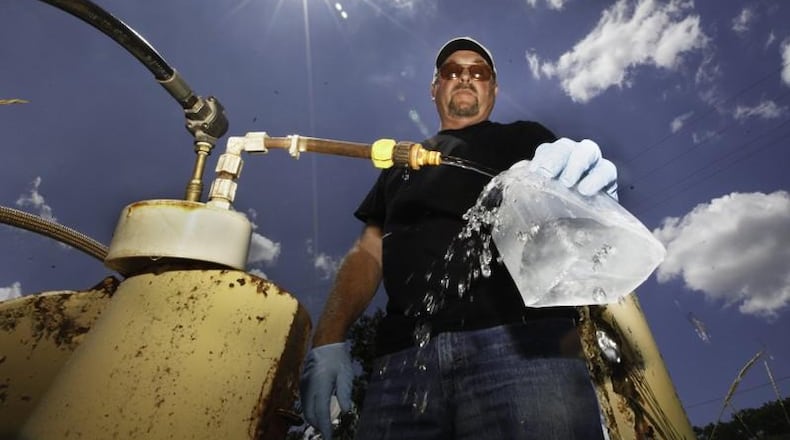Most people won’t see a change in their service now — and if the plan works as officials hope — it will mitigate rate increases by allowing the two systems to function as one and plan together to make the future less uncertain, said Dayton City Manager Shelley Dickstein.
“We don’t have crystal balls that work for five years, let alone 40 years,” Dickstein said. “It’s important to create the predictability and stability.”
The county system supplies drinking water to about to about 250,000 residents and will continue to purchase its water from Dayton, which altogether pumps water for about 400,000 people, or about three of every four Montgomery County residents.
Montgomery County Administrator Joe Tuss said the two utilities need to be managed seamlessly.
“We need to run our two utilities as a single system. And where those two utilities interface, you always have to have lots of dialogue about who’s responsible for what,” he said. “Who owns what and how you define that.”
Local governments are getting fewer state and federal dollars for infrastructure needs, including for water systems. So much of that investment has to be generated locally, Tuss said.
“It allows us to set rates so that we are able to keep things stable and then have the dollars necessary to reinvest in all of the capital that we need to reinvest in both systems.”
The agreement would automatically renew for another 20 years and set up a timeline to determine when water rates the city charges to the county are adjusted. Eventually, the bulk rate the county pays the city for 1,000 cubic feet of water, or 748 gallons, will drop from $17.73 to $17.01.
Montgomery County Commission President Debbie Lieberman called the new agreement “historic.” It replaces an expiring 15-year agreement.
“This long-term, collaborative agreement maintains quality, consistency and stability for our customers,” said Lieberman, Montgomery County Commission president.
Dayton Mayor Nan Whaley said the agreement will establish a foundation for the long-term sustainability of the region’s water resources.
“I consider this to be a true win for all of the citizens in Dayton and Montgomery County both now and for decades to come,” Whaley said.
The plan takes effect immediately after the approval of both commissions. County commissioners will vote Tuesday today, city commissioners Wednesday.
Both city and the county also agreed to certain reinvestments, including a new pump station and water lines necessary to provide redundant service for the Greater Moraine Water District within 10 years.
Having an agreement in place will help the city and county tackle needed projects in a comprehensive manner, officials said.
“What that allows us to do is collaborate around infrastructure investment and capital investment. On an annual basis we review rates, looking at three-year rolling average of operational costs. So what it allows us to do is cooperatively and collaboratively prioritize infrastructure improvements,” Dickstein said. “So it really is more about us collaborating together versus the city and the county working separately. And that’s what we really needed to do to ensure that we had an equitable and stronger regional utility that positioned it for growth in moving forward.”
Many water pipes in Montgomery County were laid decades ago and have now aged beyond their lifespans. Dayton’s 792 miles of water mains are on average 75 years old. More than 50 percent of Montgomery County’s 1,400-mile system was put in more than 50 years ago, according to city and county officials.
About the Author


